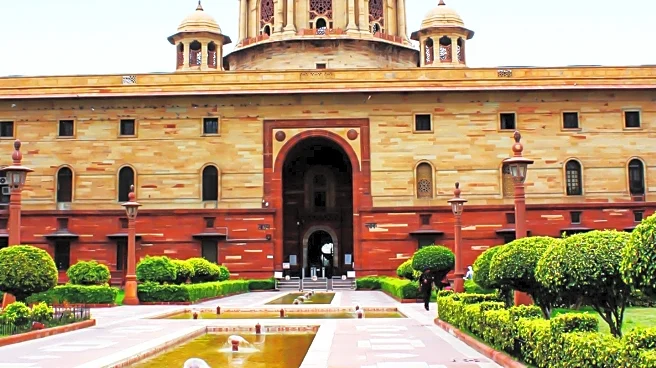What's Happening?
The Health Ministry has reported a significant increase in COVID-19 cases over the past few months, with health funds noting a rise in hospitalizations and diagnoses. Despite the increase, vaccination rates remain low, with fewer than 50,000 Israelis vaccinated last year. The current wave is characterized by the Nimbus and Stratus variants, which are more transmissible but not necessarily more aggressive. The rise in cases is primarily among older individuals with underlying conditions, while younger people who were vaccinated years ago are experiencing more severe symptoms due to waning immunity.
Why It's Important?
The resurgence of COVID-19 cases highlights the ongoing challenges in managing the pandemic, particularly in terms of vaccination uptake. The low vaccination rates in Israel, compared to other Western countries, pose a risk of increased hospitalizations and severe cases, especially among vulnerable populations. The situation underscores the need for effective public health campaigns to raise awareness about the importance of vaccination, as well as the potential consequences of vaccine hesitancy. The economic and social impacts could be significant if the wave continues to grow, affecting healthcare systems and public health policies.
What's Next?
The Health Ministry has updated its vaccination recommendations, urging people 65 and older and those in risk groups to get vaccinated. Starting next month, Novavax vaccines will be available, targeting the JN.1 strain. The ministry aims to improve public awareness and combat misinformation about vaccines. The focus will be on encouraging at-risk groups to receive annual vaccinations, similar to influenza shots. The effectiveness of these measures will be crucial in controlling the spread and minimizing the impact of the current wave.
Beyond the Headlines
The rise in COVID-19 cases amidst low vaccination rates raises ethical concerns about public health communication and the spread of misinformation. The challenge lies in balancing individual freedoms with collective health responsibilities. The situation may prompt discussions on the role of government and health institutions in ensuring public safety and the ethical implications of vaccine mandates.









